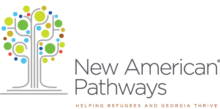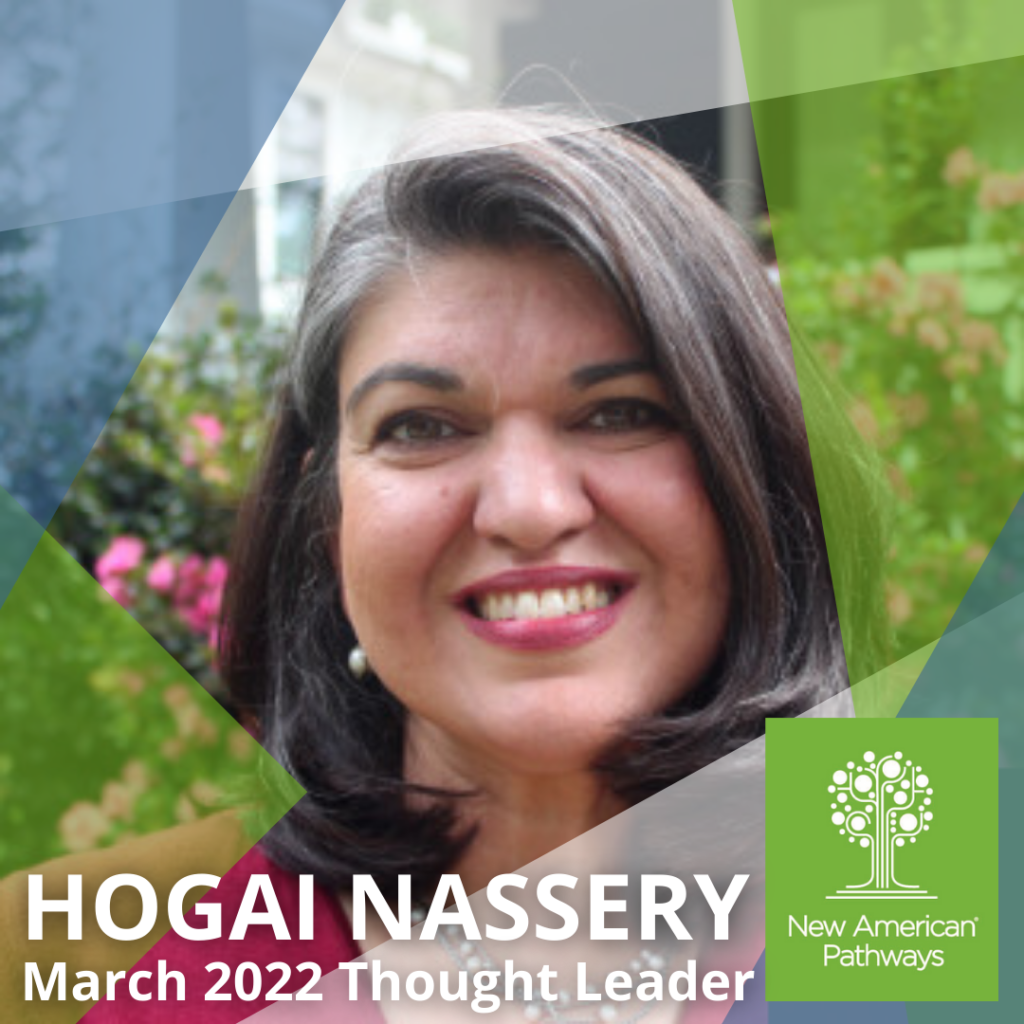This month’s thought leader piece features Dr. Hogai G. Nassery and her thoughts on the crisis in Afghanistan. Dr. Hogai is a family physician and the co-founder of the Afghan American Alliance of Georgia. Her family immigrated to the United States in 1973, after a coup d’etat in Afghanistan. Her parents sponsored numerous Afghan families who sought refuge in Georgia after the Soviet invasion of Afghanistan. Her father strongly believed that the United States was the land of opportunity and that education was the key to realizing those opportunities. She is married with two sons, and lives in Decatur, GA.
An Afghan woman cannot take anything for granted. She cannot assume she has the right to an education, to a job, to health care, to marital choice, to safety, or to travel alone outside her home, even to the market. She has to fight for all of those rights, because in Afghanistan, they are not rights, they are privileges. They were granted (at least in theory) for 20 years, then abruptly taken away. Women and girls in Afghanistan are now living in a state of perpetual martial law.
We cannot be surprised that this has happened. We all know who the Taliban are, whom they are funded by and how brutal they are in imposing their unrecognizable form of “Islam.” The United States negotiated with the Taliban without the involvement of the Afghan government, and the outcome was the rapid withdrawal of U.S. forces. It was a disastrous decision with catastrophic consequences that are still being understood. Particularly for Afghan girls and women.
No one in the world was ready for the flood of refugees from Afghanistan. The Special Immigrant Visa process should have brought thousands of our allies to safety over the past five years. But the Trump administration deliberately dismantled the process, and thousands were left stranded in Afghanistan as the Biden administration followed a completely unrealistic withdrawal timeline. Every part of the refugee resettlement pipeline has been overwhelmed, from the State Department all the way down to local health departments who are supposed to do refugee health evaluations. There is not enough housing or case workers to assist families with the complicated process of settling in a new culture and country.
Our organization, Afghan American Alliance of Georgia, began in Atlanta in September 2021. I have met dozens of Afghan women while they were staying in hotels, AirBnBs, and eventually their long-term apartments. I’ve spoken with others who are on military bases and want to know what life is like in Georgia. I’ve seen how they are initially reserved, then open up when they realize I want to hear about them, what they need, and how to help. Only at the end do they talk about their grief. I remember asking one mother early on, “What do you need?” She lowered her eyes and said, “We need our homeland back.”
Some of the women here are pregnant, often exhausted and very stressed. Their husbands might be soldiers not accustomed to being at home for very long, and are now in small apartments with five or more children. Everyone is anxious and frustrated. When will they find a job? When will their kids start school? How are their families back home surviving with so little food? When can they start sending money to them?
I have met female doctors, lawyers, judges, quality control specialists, and interpreters. Some women are quite confident and speak easily while others are shy, quiet and deferential. I asked one young woman to write down her younger sibling’s shoe sizes as I measured their feet, and she demurred saying, “I am not educated.” My heart ached. I have tried not to make that assumption again.
New American Pathways helped six young Afghan women come to Georgia State University to continue their studies. They were evacuated just as Kabul was falling. I spent Sunday with four of them. We flew kites to celebrate Nowruz, which is the Persian New Year. It was wonderful to see them laughing and enjoying the beautiful weather. One has lost five family members since she arrived in the U.S. Another goes online first thing every morning to make sure her brother is online, so she knows he is still alive. He is an Afghan army officer being hunted by the Taliban. They are from a minority ethnic group that has been targeted by the Taliban in the past. All mourn for their friends and family who are trapped in Afghanistan and have no hope for the future. They ask me how they can make money to send it home to their families facing a brutal winter and a collapsing economy.
When you ask the girls and young women about their goals, they all say: I want an education. Our GSU students tell us about the bombs that would explode near their schools regularly, and how their parents didn’t want them to return to school the next day. But this only strengthened their resolve, thinking their opportunity to learn was even more precious because it was so tenuous.
The Afghans who are here are incredibly fortunate. That does not mean that it is easy. They are frustrated by how long everything takes, from getting placed in an apartment to obtaining a Social Security card to enrolling their kids in school. We are all stunned by the unfairness of the processes involved. Most of the young people did not come with any transcripts or diplomas. When they try to enroll in a community college or apply for financial assistance, the first request is for their transcripts. Unsurprisingly, they did not have time to get these documents, and no one is able to send them. To get these credentials verified (if possible) by an outside entity costs hundreds of dollars. This adds to the grief many of these families are grappling with.
We see the same thing with pregnant women trying to see an obstetrician, who want to see their medical records and ask why they haven’t been receiving prenatal care. They also want an interpreter to see them. And there are not enough volunteers and caseworkers to navigate the maze that is the U.S. health care system.
Six months into this humanitarian disaster, we are seeing the mental health toll this is taking on families. We are told that there is a stigma to mental health services in Afghanistan, but that is belied by the number of people who have asked for counseling. We scramble to find resources for them in their language, and settle for whatever we can find.
Yet every day we see resilience and fortitude. We see men who defy stereotypes and urge us to get their daughters enrolled in school. We see young girls who are busy taking care of the toddlers in their families. We see older boys who are desperate to find a job so they can help their families meet their monthly rent. There is so much we can do to help, and there are some amazing Atlantans who have stepped up to do this work. We have retired midwives who visit pregnant women, families who give up their weekends to sort and deliver clothes, and many generous donors of furniture and household items.
But we need more people to get involved. Our organization is run by volunteers, and we are building our systems as we do the work. It is messy, fun, sad, and gratifying. We are in awe of these new Georgians who have come here looking for a better life. They are eager to work and learn and adapt. But they need partners on this journey. If you are interested in meeting and helping an Afghan family or in sourcing and delivering sewing machines, we have those opportunities. This is grassroots advocacy and service in its truest form, where problems are solved as they develop and it is never wrong to try something new.
In all sincerity, it is this work that helps us all stay grounded in the pressure cooker that is our world today. When you do something tangible and substantive for a new Georgian, working beside a neighbor or local high school student, you know you are creating good in a world that desperately needs it. You see the impact of your efforts and you meet the person or family you are helping. It feeds your soul.

